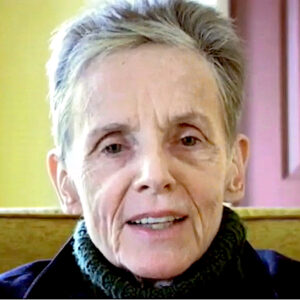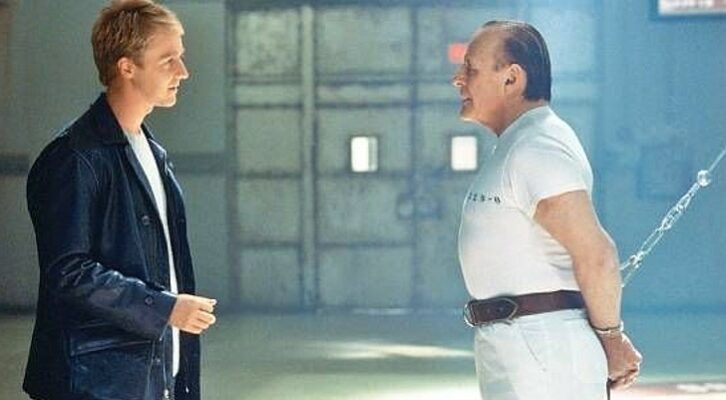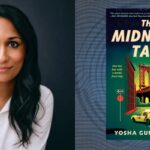Lit Hub Weekly: April 6 - 10, 2020
THE BEST OF THE LITERARY INTERNET

- THESE TIMES: André Aciman on how pandemics change us and the life to come • Coronavirus is a humanitarian crisis, not a war: Nathaniel Popkin on the consequences of male inferiority • Lauren Markham remembers the last train trip before everything changed • Shobha Rao on letting birdsong fill this new pandemic silence • Emily Temple wonders what the novel will look like in a post-pandemic world • How to bartend: Rabih Alameddine on life, death, and soccer (during the last pandemic) • Now might be the time to read a very long novel—here are 50 great ones over 500 pages • A coalition of arts organizations has raised $10 million to provide emergency grants to working artists and writers across the US • What happens to the presidential election during coronavirus? · Round four of our personalized quarantined book recommendations · Please stay home and enjoy the best literary adaptations to stream right now. | Life in a Pandemic
- Julie Buntin on Emily St. John Mandel’s “heartbreakingly resonant” new novel, Hermione Hoby on Mieko Kawakami’s “moving, messy aria of supremely female grief-letting,” and more of the Reviews You Need to Read This Week. | Book Marks
- Elle Marr recommends 5 great crime novels bringing multicultural heroes and representation to crime fiction. | CrimeReads
- “I just want to say that history, when it arrives, may not look as you expect, based on the reading of history books.” Read a new story by George Saunders. | The New Yorker
- “The tragedy is the wreckage of a train that has been careening down the track for years.” Arundhati Roy on the coronavirus in India. | Financial Times
- Hilary Mantel, Jeanette Winterson, and more writers share snippets of their lives in lockdown. | The Guardian
- Here’s the inevitable list of books to read if you loved Tiger King. | The New York Times
- Reading Alice’s Adventures in Wonderland with children, Merve Emre writes, is a perfect task for concentrating at home. | The Point
- The literature of plagues reveals human precariousness and unexpected beauty, writes Gabrielle Bellot. | Catapult
- “I think of literature as really the dream life of the culture that creates it.” Jennifer Egan talks to the PEN Pod about getting over Covid-19 and what we should do now. | PEN America
- An investigation by ProPublica and The Atlantic reveals how Amazon’s self-publishing division has been used as a gateway for extreme right-wing views. | ProPublica
- Montaigne’s “Of Experience” speaks to “how to live when life itself comes under attack,” a relevant lesson for 2020. | The Paris Review
- Ron Charles on learning from Walden, “the world’s most famous act of social distancing.” | The Washington Post
- “The virus reminds us: borders exist, and they’re doing just fine.” Olga Tokarczuk looks out her window. | The New Yorker
- The Believer has launched The Believer Jr., a limited run newsletter full of at-home activities for parents and kids. | The Believer
- The 17th-century poet, politician and satirist Andrew Marvell was loud about his English patriotism. But a new discovery proves he was at one point a spy for the Dutch. | TLS
- “I feel that I am like the designated New Yorker. Everyone else can leave.” In case you were wondering, Fran Lebowitz is staying in New York (and still not using an iPhone). | The New Yorker
- “I wish the book seemed less relevant than it does.” Emily St. John Mandel on interconnectedness and the problems with writing post-apocalyptic fiction. | Los Angeles Review of Books
Also on Lit Hub:
A feminist critique of Murakami novels, with Mieko Kawakami, and… Murakami himself • Ta-Nehisi Coates on the privilege of knowing the late, great David Carr • Veronica Roth on writing dystopian fiction that longs for a better world • Visit the quiet London enclave where Virginia Woolf, Hilda Doolittle, and others forged a home • How to pay attention in a time of crisis: A reading list for the (understandably) distracted • Sahar Mustafah makes the case for teaching “depressing” books • On Helen Hamilton Gardener’s fight against sexist science in the 19th century • Meet Nancy Wake, the most incredible woman you’ve never heard of • Sara Martin falls in love with libraries, again and again • Chris Lamb recalls some of the best political putdowns even captured on video • Marie Mutsuki Mockett on the cultural lessons of two chaotic imaginary cats • How having a writing community stimulates creativity • Finding permission to fail in A Confederacy of Dunces • Helen Pilcher on the interspecies bond that changed the course of human history • Rowan Hisayo Buchanan on negotiating wellness and sickness • Chris Martin on what we can learn from each other—and the natural world • On early Judaism and its conception of the afterlife • Moby-Dick‘s powerful message for the Atomic Age • Chelsea Bieker on motherloss and the painful edge of grief and love • How Ellen Meeropol wrote her novel from within the Rosenberg family legacy • On the reimagined grammar(s) of C. Pam Zhang’s debut novel • How did England get its bizarro street names? • A look at Elizabeth George’s no-frills writing routine • Betsey Johnson recalls striking out on her own (on the eve of the cotton Lycra revolution) • On leaving a life and moving to Alaska—with a pack of sled dogs as companions • On gendered violence and female rage
Best of Book Marks:
New on CrimeReads:
Lisa Levy recommends April’s best psychological thrillers to read while sheltering in place • Don Winslow talks with CrimeReads editor Dwyer Murphy about his long-awaited return to California Noir • Craig Pittman on how Elmore Leonard became a Florida Man • Anika Scott knows that the best historical fiction features morally gray characters • Olivia Rutigliano wants everyone to know that Agatha Christie is THE best-selling novelist in history • Megan Campisi on the strange, sordid world of Elizabethan true crime • Andrew Welsh-Huggins on the evolution of Columbus, Ohio from Cowtown to Crimetown • Kristine S. Ervin on a daughter’s grief, a forensics expert, and an unsolved murder • Tess Gerritsen on suing Hollywood for copyright infringement • Brenda Chapman celebrates unconventional women in long-running series



















